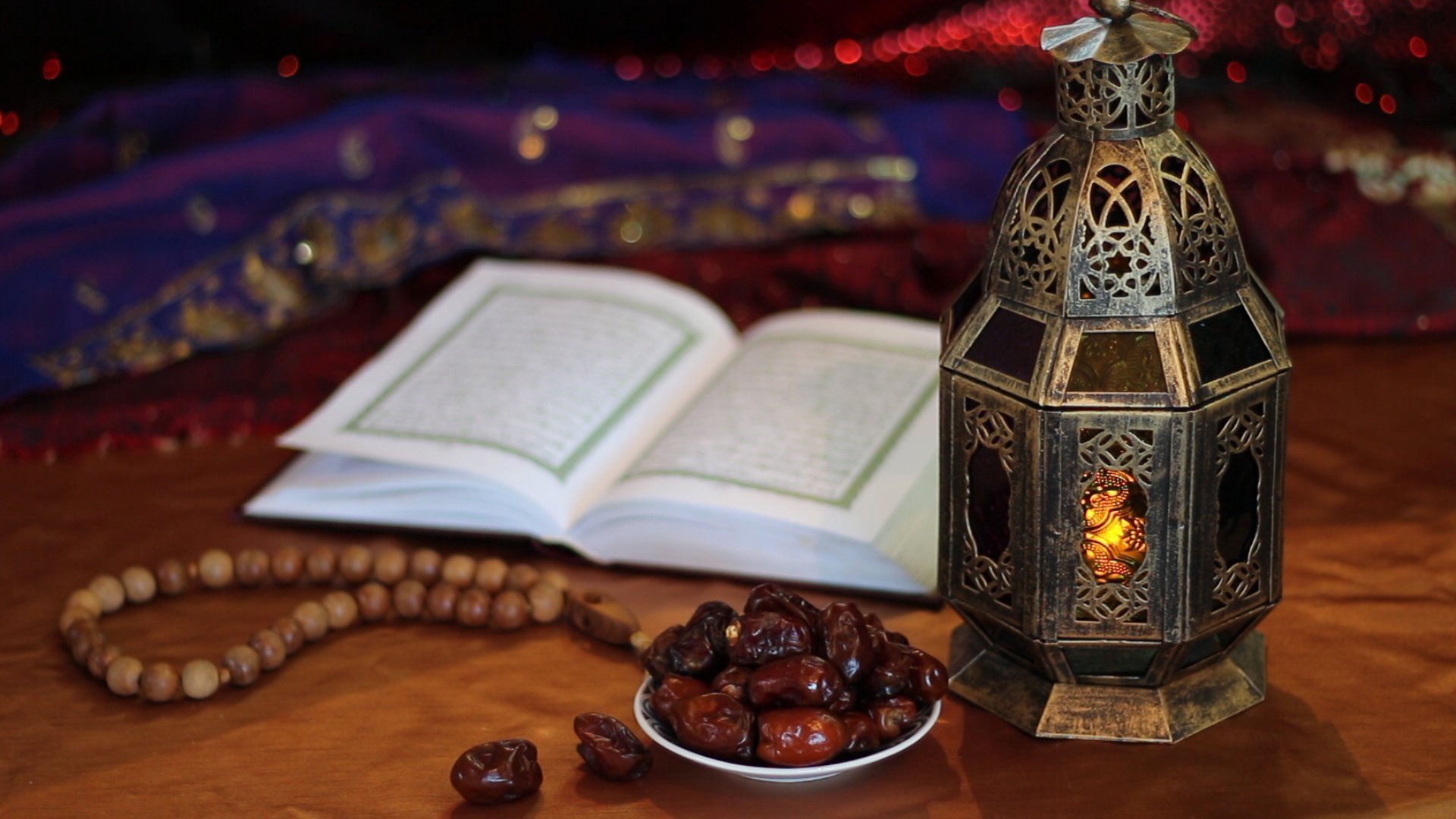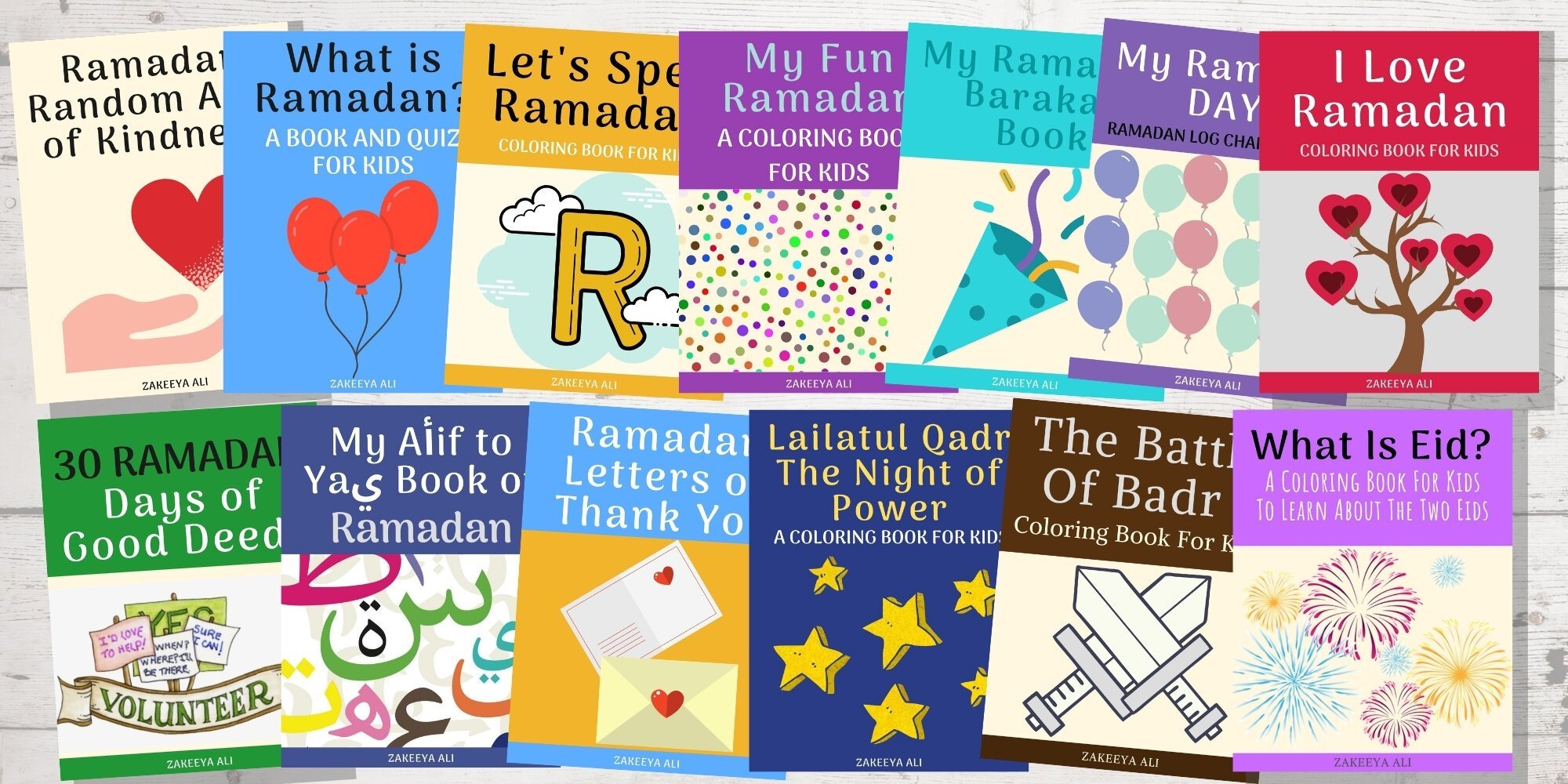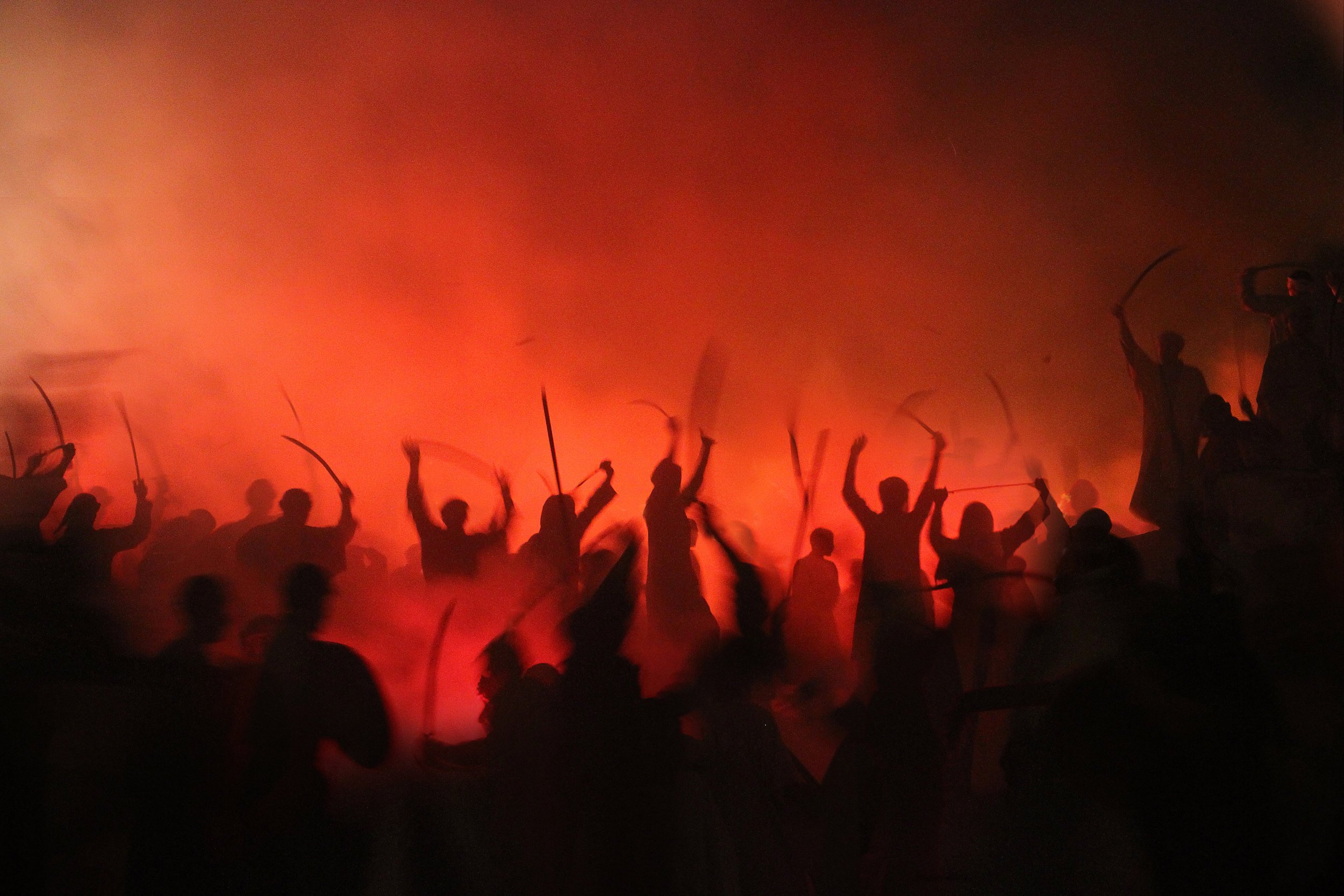Explaining Ramadan To Your Child
Ramadan Kareem! Our beautiful month has arrived, and we will greet our friends and family with the kind words of Ramadan Mubaruk, which means Ramadan blessings, or Ramadan Kareem, which means Ramadan is generous.
“O you who believe fasting is prescribed to you as it was prescribed to those before you so that you can learn self restraint”. (Quran, Surah Al Baqarah 2:183)
The Meaning of Ramadan
Ramadan is taken from the word 'ramad' which means, that which is intensely or vehemently heated by the sun, and the word 'ramdhaa' means, the intense heat of the sun. The Arabs changed the names of the months from the ancient language, they named them according to the seasons in which they fell, and this month fell in the days of intense heat, which is why it was named Ramadan. This month was named Ramadan because it burns the sins of people with righteous deeds (source: MuslimMatters).
Ramadan is the ninth month in the Islamic calendar and lasts 29 or 30 days, depending on the visual sighting of the new crescent moon. Ramadan (like all the other Islamic months) adheres to the lunar calendar (which follows the phases of the moon), and since this is eleven days shorter than the Gregorian calendar (which follows the sun), it comes eleven days earlier every year. This means that Ramadan will occur in various seasons and weather conditions throughout the years.
Sawm is the Arabic word for fasting, and is the fourth pillar in Islam, which is incumbent on all Muslim males and females who have reached the age of puberty and who are mentally and physically fit.
A person who fasts must refrain from dawn until dusk from:
Eating
Drinking
Smoking
Sexual relations
Foul language
Bad Conduct
However, there are many people who are exempt from observing fasting.
People such as:
The elderly
The sick
Those who are on a journey
Women who are pregnant or breastfeeding
Women who are menstruating
Fasting is an act of worship, so those who miss their fasts are required to make up the equal number of missed days later in the year. Those who are unable to fast at all must feed a needy person for each missed Ramadan fast.
"Every one of you who is present (at his home) during that month should spend it in fasting, but if any one is ill, or on a journey, the prescribed period (should be made up) by days later. Allah intends every facility for you; He does not want to put to difficulties." (Al-Baqarah 2:185)
Suhoor
In Ramadan, Muslims awaken before dawn, when the "white thread becomes distinct from the black thread," (Al-Baqarah 2:187), for an early meal called suhoor. Suhoor helps our physical health by providing the essential nutrition and strength to sustain our body during the long hours of the day. It is recommended that one who intends to fast should:
Have suhoor
Have dates with suhoor
Make your intention to fast for that day
We should not have suhoor too far away from fajr. Narrated Anas: Zaid bin Thabit said,
“We took the suhur with the Prophet . Then he stood for the prayer." I asked, "What was the interval between the suhur and the adhan?" He replied, "The interval was sufficient to recite fifty verses of the Quran."
The Messenger of Allah SAW also said:
“Eat suhoor for in suhoor there is blessing.” (Bukhari, 1923; Muslim, 1059).
"How excellent are dates as the believer's suhoor." (Abu Dawood 2:303).
Iftaar
At dusk, Muslims break their fast with a meal known as Iftar. It is considered a time for families to gather together and share supper. It is recommended at iftaar to:
Hasten to break one's fast
Break one's fast with dates and water
Say Bismillah and make your intention to break your fast. The Prophet (SAW) said:
“The people will continue to be fine so long as they hasten to break the fast.” (Bukhari, 1957; Muslim, 1098)
Anas (may Allah be pleased with him) said:
" The Messenger of Allah (SAW) used to break his fast with fresh dates before praying; if there were no (fresh dates) then with dry dates, and if there were no (dried dates) then he would take a few sips of water." (Abu Dawood 2356; al-Tirmidhi 696)
When the Prophet (SAW) broke his fast he would also say:
"Thirst is gone, veins are flowing again, and the reward is certain, Inshallah.” (Abu Dawood 2:765)
The Virtues of Ramadan
Ramadan is a gift to Muslims because it helps us achieve taqwa, or God-consciousness. It teaches us sincere love for Allah, patience, unselfishness, kindness, moderation, willpower, discipline, a spirit of social belonging, unity, and brotherhood, to name a few. In the Quran and Sunnah, the month of Ramadan has advantages over the other months, because it will bring our attention to the following virtues:
1. It is the month of the Qur'an
In regards to revelation and study. On the authority of Ibn Abbas: Angel Jibreel used to meet the Prophet (saw) every night in Ramadan and used to study Quran with him. We are strongly advised to recite the Quran even more during Ramadan, and if possible, to complete the entire Quran at the completion of Ramadan.
"The month of Ramadan in which was revealed the Quran, a guidance for the people and clear proofs of guidance and criterion. So whoever sights [the new moon of] the month, let him fast it; and whoever is ill or on a journey – then an equal number of other days. Allah intends for you ease and does not intend for you hardship and [wants] for you to complete the period and to glorify Allah for that [to] which He has guided you; and perhaps you will be grateful." (2:185)
2. It is the month of Seclusion
In the last ten days of Ramadan, many Muslims go into seclusion, known as itikaf, for prayer and meditation in search of Lailut ul-Qadar or the Night of Decree. Many spend this night in supplication to Allah.
The exact date that this night falls on is uncertain, but it is widely agreed that it occurs in the last ten days of Ramadan, and some evidence suggests that it occurs on one of the odd nights or on the 27th of Ramadan. To spend this night in prayer is considered to be more rewarding than a thousand months of devotion.
"The Prophet SAW used to observe i'tikaf every year (during Ramadan) for ten days; in the year in which he passed away, he observed i'tikaf for twenty days." (Bukhari)
3. It Is the Month of Generosity
We should be more generous in Ramadan by having a good attitude, sharing our knowledge, giving money, and using our position of authority or physical strength to help others. Combining fasting with feeding the poor is one of the means of reaching Jannah.
“The Messenger of Allah (SAW) was the most generous of people [in doing good], and he was most generous of all in Ramadan when Jibreel met with him, and he used to meet him every night in Ramadan and teach him the Qur’an. The Messenger of Allah (SAW) was more generous in doing good than a blowing wind.” (Bukhari, al-Fath, no. 6)
The Prophet (SAW) said:
“In Paradise there are rooms whose outside can be seen from the inside and the inside can be seen from the outside. Allah has prepared them for those who feed the poor, who are gentle in speech, who fast regularly and who pray at night when people are asleep.” (Reported by Ahmad 5:343; Ibn Khuzaymah 2137)
The Prophet (SAW) also said:
“Whoever gives food to a fasting person with which to break his fast, will have a reward equal to his, without it detracting in the slightest from the reward of the fasting person.” (Tirmidhi, 3:171; Saheeh al-Targheeb, 1:451)
4. It is the month of Standing in Voluntary Night Prayer
Throughout this month, there are long nightly prayers during which lengthy chapters of the Quran known as taraweeh are recited. These prayers, although not compulsory, are greatly recommended. The word taraweeh comes from the Arabic word for "rest,” as during these prayers worshippers sit for brief periods to rest before resuming their prayer.
The Messenger of Allah SAW said: "Whoever stands (in the voluntary night prayer of) Ramadan out of faith and in the hope of reward, his previous sins will be forgiven. And whoever spends the night of Lailat Al-Qadr in prayer out of faith and in the hope of reward, his previous sins will be forgiven." (Nasa'i)
5. It is the month of the Compulsory Fast
By fasting and giving your stomach a rest, it is regarded as a method of self-purification. Cutting oneself off from worldly comforts, even for a short period of time, helps a person gain true sympathy for those who go hungry. Fasting is a very enriching experience as one transcends the needs of material components for spiritual uplifting. It is as if a person goes into maintenance by recharging their batteries for the rest of the year.
"So, whoever among you witnesses the month should fast." (2:185)
"O you who have believed, decreed upon you is fasting as it was decreed upon those before you that you may become righteous." (2:183)
Get these printable Ramadan books to teach your kids all about this blessed
How To Get Them Free In Ramadan
Simply subscribe to gain access to the Member Vault and receive my newsletters as well as many other freebies that are available anytime or seasonal. If you are already a member, enter the Members Vault using the password you received in your welcome email or your recent newsletter.
Salam, I’m Zakeeya!
I believe being a wife, a mother, and making our homes a sanctuary for our families brings us tremendous blessings, fulfillment, and improves society. Since 2011, I've been committed to helping Muslimas find tranquility in their roles, take better care of themselves, and attain contentment within. Our journey is not an easy one, but I pray the resources and mentoring I offer, will assist in navigating you through your everyday challenges with mindfulness and gratitude, inshallah. Join me as I share wifehood, motherhood, homemaking, and lifestyle solutions that make life more fulfilling for you as a woman! READ MORE






























